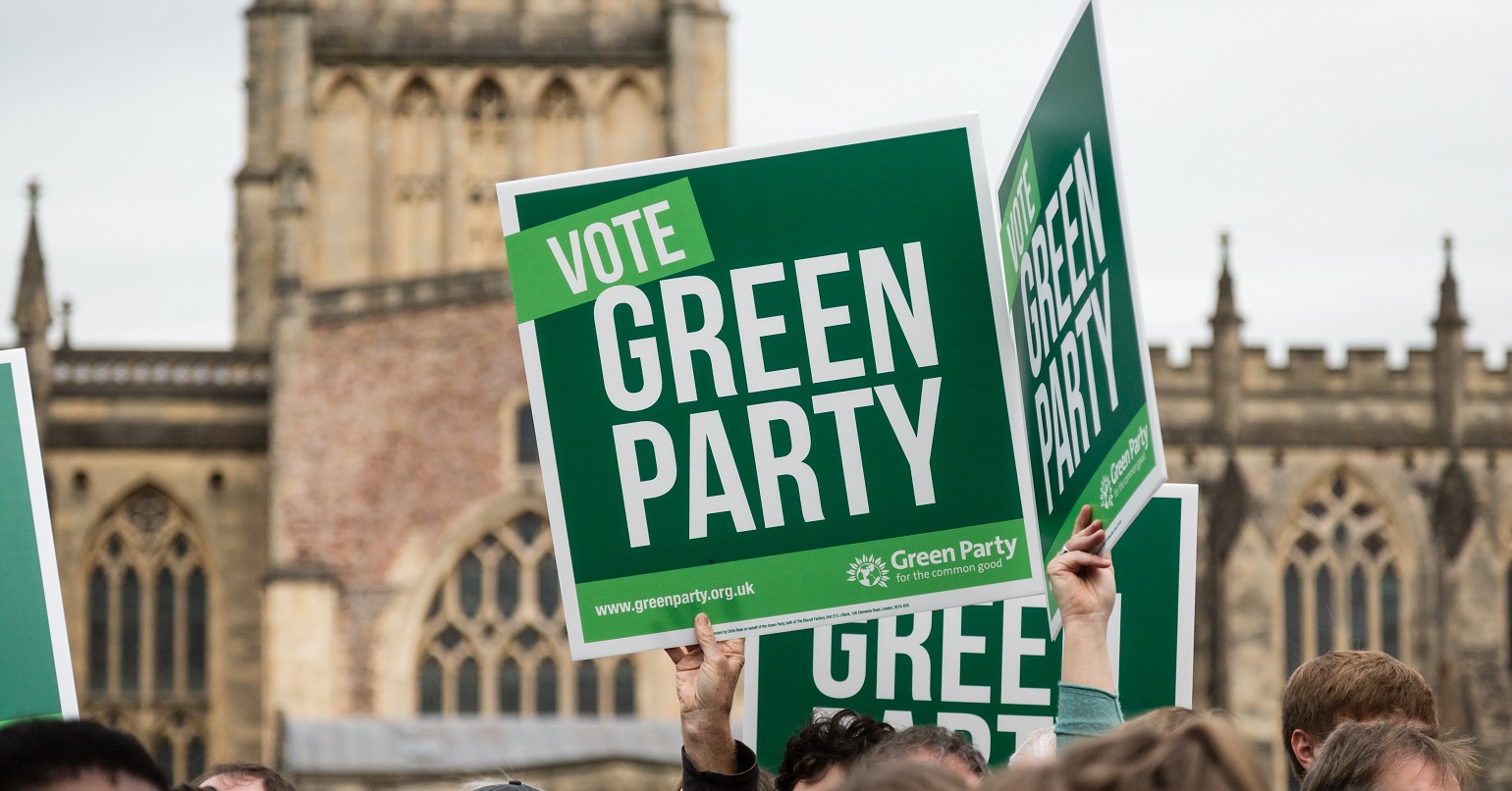Green Party Executive results declared

Over the summer, members of the Green Party of England and Wales voted to elect a new deputy leader, and members of its executive (GPEx). London Assembly member Zack Polanski won the deputy race, picking up 42 per cent of the first preference vote. Here’s the full breakdown of the results for GPEx.
Chair
One of the most powerful positions on GPEx is chair. There were four candidates in the running this year. In the first round of voting, the results were:
- Jon Nott: 1,780 votes – 36%
- Ash Routh and Melanie Earp: 1,497 votes – 31%
- Tina Rothery and Alison Teal: 1,394 votes – 28%
- Adrian Spurrell: 215 votes – 4%
- Re-Open Nominations: 17 votes – 0.3%
After two further rounds of counting, in which the second and third preferences of re-open nominations, Adrian Spurrell, and Tina Rothery and Alison Teal were reallocated, leading to Jon Nott winning with 2,377 votes to 1,942 votes for Ash Routh and Melanie Earp.
Nott received the backing of both the Greens’ sole MP Caroline Lucas and the party’s former co-leader Sian Berry.
Elections coordinator
There were three candidates standing for the elections coordinator post. In the first round of voting, the results were:
- Brian Candeland: 1,574 votes – 41%
- Edward Milford: 1,155 votes – 30%
- Chris Holt and Alan Borgars: 1,072 votes – 27%
- Re-open nominations: 59 votes – 2%
Brian Candeland went on to win in the second round of counting.
In an interview with Bright Green, Candeland said he thinks the Greens can win two MPs and 900 Councillors in the next five years.
External communications coordinator
A head to head battle in this year’s external communications coordinator race. The results in the first round of counting were:
- Molly Scott Cato: 2,607 votes – 66%
- Dylan Lewis-Creser: 1,072 votes – 27%
- Re-open nominations: 271 votes – 7%
Molly Scott Cato therefore won in the first round. Scott Cato is a former MEP for the South West of England.
Internal communications coordinator
Another hotly contest election, there were three candidates for internal communications coordinator this year. After the first round of counting, the results were:
- Nannette Youssef and Georgie Oatley: 1,365 votes – 42%
- Sarra Earl and Ivan Noke: 1,203 votes – 37%
- David Farbey: 626 votes – 19%
- Re-open nominations: 44 votes – 1%
Nannette Youssef and Georgie Oatley were subsequently elected in the second round of counting – receiving 1,652 votes to Sarra Earl and Ivan Noke’s 1,399.
Youssef and Oatley have pledged to “build mass participation and engagement” through the party internal communications.
Management coordinator
Another head to head contest for management coordinator. In the first round of counting, the results were:
- Stacy Smith: 1,959 votes – 57%
- Kefentse Dennis: 1,291 votes – 38%
- Re-open nominations: 146 votes – 4%
Stacy Smith therefore won in the first round.
Smith is currently CEO of a women’s charity.
Trade union liaison officer
In the final contested election, there were two candidates for trade union liaison officer. In the first round of counting, the results were:
- Matthew Hull: 2,508 votes – 66%
- Kate Souper and Sarah Bingham: 1,263 votes – 33%
- Re-open nominations: 31 votes – 1%
Matthew Hull was therefore elected in the first round of counting. Hull is currently chair of the Green Party Trade Union group.
Campaigns coordinator
The election for campaigns coordinator was uncontested. Tom Scott was elected unopposed with 90 per cent of the vote. Re-open nominations received 9 per cent of the vote.
What does all this mean?
The successful candidates will join a wider GPEx team which includes the party’s co-leaders and deputy leader, the leader of the Wales Green Party, the Young Greens co-chairs and members elected to specific portfolios in last year’s GPEx elections. An election for the international coordinator post has been delayed and will be held later this year.
Sadly, discussions around trans rights continue to dominate much of the conversation in internal Green Party elections. In this year’s elections every single candidate who was elected supports the party’s position on trans rights, and is seen as broadly supportive of the LGBTIQA+ community.
PS. We hope you enjoyed this article. Bright Green has got big plans for the future to publish many more articles like this. You can help make that happen. Please donate to Bright Green now.
Image credit: Bristol Green Party – Public Domain



Why does most of this website read like a communist manifesto and miss the point that King Charles the third is probably the biggest (and best placed) advocate of green issues you could wish for?
Congratulations to all those elected! I hope future elections can focus away from my existence as a trans person as it is exceedingly difficult that each internal election ends up being a de facto referendum on my existence. Glad we are moving in the right direction.